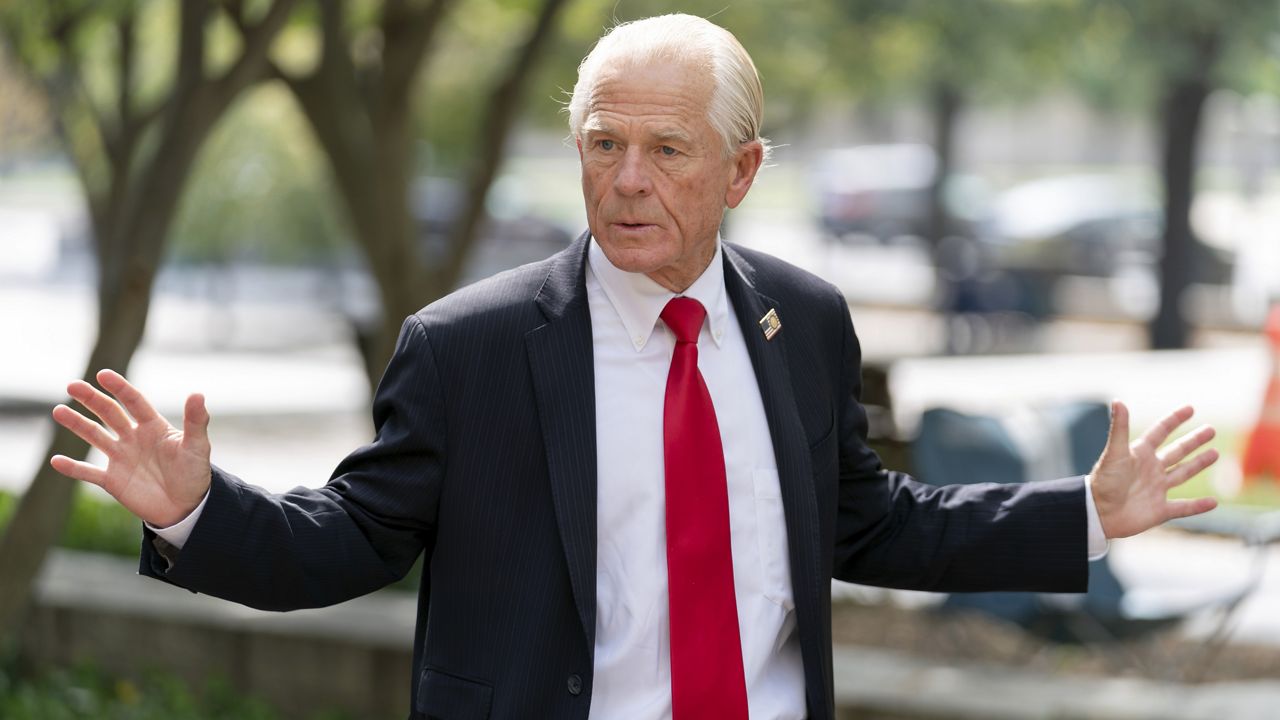Former Trump trade adviser Peter Navarro, who was convicted of contempt of Congress for refusing to cooperate with a congressional investigation into the Jan. 6, 2021 attack on the U.S. Capitol, has been sentenced to four months in prison Thursday.
He was the second Trump aide to face contempt of Congress charges after former White House adviser Steve Bannon, who also got a four-month sentence. Bannon is free, pending appeal.
What You Need To Know
- Former Trump trade adviser Peter Navarro, who was convicted of contempt of Congress for refusing to cooperate with a congressional investigation into the Jan. 6, 2021 attack on the U.S. Capitol, has been sentenced to four months in prison Thursday
- He was the second Trump aide to face contempt of Congress charges, after Steve Bannon
- Navarro was found guilty of defying a subpoena for documents and a deposition from the House Jan. 6 committee
- Navarro quickly filed a notice to appeal the verdict
Navarro was found guilty of defying a subpoena for documents and a deposition from the House Jan. 6 committee. Navarro served as a White House trade adviser under then-President Donald Trump and later promoted the Republican's baseless claims of mass voter fraud in the 2020 election he lost.
Navarro quickly filed a notice to appeal the verdict. He previously indicated he would appeal, saying he couldn't cooperate with the committee because Trump had invoked executive privilege. A judge barred him from making that argument at trial, however, finding that he didn't show Trump had actually invoked it.
Navarro said in court before his sentencing Thursday that the House committee investigating the Jan. 6 attack had led him to believe that it accepted his invocation of executive privilege. “Nobody in my position should be put in conflict between the legislative branch and the executive branch,” he told the judge.
The judge told Navarro that it took “chutzpah” for him to assert that he accepted responsibility for his actions while also suggesting that his prosecution was politically motivated. “You are not a victim. You are not the object of a political prosecution,” the judge said. “These are circumstances of your own making.
Navarro’s lawyers had advised him not to address the judge, but he said he wanted to speak after hearing the judge express disappointment in him. Responding to a question about why he didn’t initially seek a lawyer’s counsel, he told the judge, “I didn’t know what to do, sir.”
The judge is allowing Navarro’s defense to submit a written brief on the question of allowing him to remain free pending appeal.
Justice Department prosecutors said Navarro tried to “hide behind claims of privilege” even before he knew what the committee wanted, showing a “disdain” for the committee that should warrant a longer sentence. Prosecutors had asked a judge to sentence him to six months behind bars and impose a $200,000 fine.
Defense attorneys said Trump did claim executive privilege, putting Navarro in an “untenable position,” and they asked for a sentence of probation and a $100 fine.
Bannon, who also made executive-privilege arguments, was convicted of two counts.
Navarro’s sentencing comes after a judge rejected his bid for a new trial. His attorneys had argued that jurors may have been improperly influenced by political protesters outside the courthouse when they took a break from deliberations. Shortly after their break, the jurors found Navarro guilty of two misdemeanor counts of contempt of Congress.
But U.S. District Judge Amit Mehta found that Navarro didn’t show that the eight-minute break had any effect on the September verdict. He found no protest was underway and no one approached the jurors — they interacted only with each other and the court officer assigned to accompany them.



